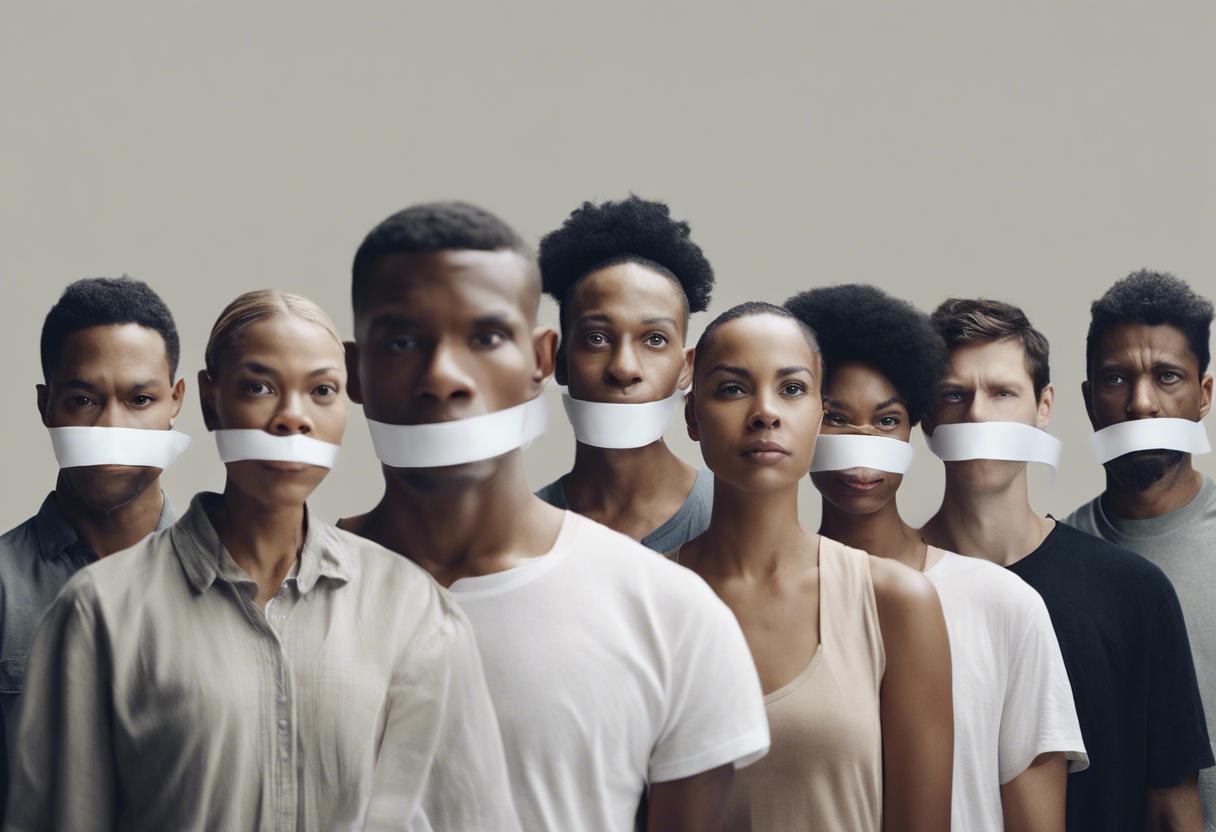Kathleen Correia made a public statement last Monday outside the Central Criminal Court where her ex-husband was sentenced to eight years imprisonment for rape, coercive control, and other atrocities committed against her. She described the struggle to relinquish her right to anonymity, but asserted that it was the correct decision for her. Correia revealed her prolonged silence and denial of her reality, and the ensuing feelings of solitude, humiliation, and regret. She expressed the belief that by retaining her anonymity, she would persist in experiencing those emotions.
The psychological weight of handling intricate trauma unaided is undoubtedly relatable to those who have been victims or have survived sexual violence. It has been a slow process dismantling societal and cultural obstacles that prevent open discussions on the topic.
The ‘Signs of Hope’ initiative provides a platform for those who have experienced sexual violence to link with others who haven’t yet sought assistance from support services.
The breaking of anonymity by Lavinia Kerwick in a 1993 interview with Gerry Ryan was a landmark moment. Recalling the event on the Late Late Show in 2019, Kerwick noted that the term ‘rape’ was considered taboo before 1990 and likened to profanity.
Kerwick’s astonishing bravery set a precedent for future victims of rape and sexual violence to openly discuss their experiences. She emphatically asserted, “the guilt and shame are not yours to bear, they belong to the rapist”.
Fast forward three decades, Kathleen Correia’s address to the public mirrors that of Kerwick’s – it’s centred around guilt and shame. Despite this passage of time, countless culprits have managed to evade detection due to the enduring stigma and silence surrounding sexual violence, effectively providing a cover for these offenders.
Dublin Rape Crisis Centre deeply appreciates those who bravely share their experiences in public, acknowledging however that for a significant number of victims, public discourse is not doable. Regrettably, a considerably small fraction of those abused sexually get to witness the conviction of the offenders.
The hurdles increase dramatically for child abuse victims who are now grown-up. Naturally, there are many individuals who prefer not to voice their experiences in public, and this choice should never result in guilt or compulsion. It’s vital for all who have endured sexual violence to discover their own path to healing.
Without the desire or possibility of pursuing justice legally, and in the absence of conviction, often the victim does not experience the same sense of vindication that a guilty judgment or public concession of guilt might provide. So for victims who do not choose the legal avenue, what other options exist? If there is no criminal conviction, can the victims still find justice? How can validation be provided? How can survivors get support from those who understand and have helped many others dealing with similar trauma?
A criminal case was reported over the summer where a man was convicted of repeatedly raping his wife for over twenty years. The media’s spotlight on the case encouraged other women experiencing the same to contact the 24-hour National Rape Crisis Helpline, albeit they may not file a complaint with the police. The women find solace in the guilty verdict as it indirectly recognizes their experiences, and this emboldens them to make the call. Numerous victims quietly endure similar traumas, seeking solace in communing with other survivors.
The Dublin Rape Crisis Centre envisions a future free from shame, alienation, and stigma. That’s why the centre rolled out the “Signs of Hope” campaign aimed at offering a platform for sexual violence survivors to connect with others who have not yet reached out for help. Sadly, as many as 80% of those assaulted never seek help. The centre prides itself in its aim to reduce this figure by employing survivor-devised messages to urge others to contact the confidential and anonymous National Rape Crisis Helpline.
Gisèle Pelicot’s disturbing ordeal echoes the experiences of some women in Ireland. One written account is from a survivor of child sexual abuse in a religious establishment, stating, “I know a safe place you can tell your story.” The inability to find a secure avenue for him to convey his experiences aligns with Archbishop Dermot Farrell of Dublin’s reported statement on American television: “There existed a culture of avoidance, concealment, and ignoring.”
Numerous individuals who have reached out to the helpline keep their experiences to themselves, never sharing with another person. However, some have claimed that their loved ones sensed something wrong and attempted to provide assistance but were rebuffed to protect the family from being “contaminated”.
It’s not unusual for callers to straightforwardly recount their experiences and never reach out again. All they wanted was a safe space to voice out the abuse they suffered. To have a counsellor validate their experience, confirming that the fault was never theirs, is all they needed.
One recent caller just needed to voice his truth, recognizing the terrible wrongs he suffered while schooling, in the hope that speaking out would liberate him, much like Kathleen Correira.
It’s hope that binds all these survivors who are the face of Dublin Rape Crisis Centre’s awareness initiative. They envision a future devoid of shame, isolation, and stigma, and one where people aren’t hesitant to seek assistance from available support services.
Often, calls to the helpline start with, “I’m not sure you can help me,” and “I’m not sure I’m on to the right place.” Our pledge is that we can and will assist, and you’ve indeed reached the right place.
Rachel Morrogh, CEO of the Dublin Rape Crisis Centre, reiterates this commitment with the tagline, “When you’re ready to talk, we’re ready to listen.” The 24-hour National Helpline at 1800 77 88 88 offers free and confidential support for anyone affected by sexual violence.

